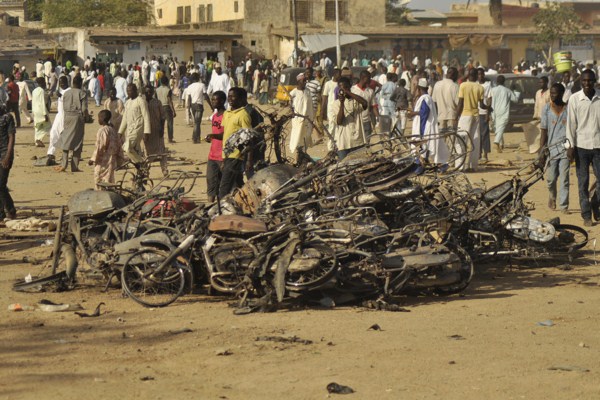Where will international stabilization forces intervene in 2015? Potential answers include Libya, Syria, Nigeria’s northern borderlands and eastern Ukraine. Restoring order in any one of these places, let alone two or more at once, would be a daunting task. Libya is sinking into full-scale civil war. Syria has been ravaged by four years of violence, leaving over 200,000 dead. The Boko Haram militant group has inflicted repeated defeats on the Nigerian military in a conflict punctuated by massacres by both sides. Russia retains the ability to turn the war in Ukraine on and off at leisure.
Few countries outside these conflicts want to send significant numbers of troops to deal with them. The United Nations has contingency plans for a peacekeeping force involving over 10,000 troops to police a cease-fire in Syria, but the documents seem likely to molder in the organization’s filing cabinets indefinitely. The U.N.’s political team in Libya, scrambling to stop the country from falling apart, has also developed ideas for a force to monitor any eventual cease-fire. Yet its leader told the The Economist this is “wishful thinking.”
Nigeria has accepted some Western support for its battle against Boko Haram and put together a coalition of its neighbors to fight the group. But the multinational effort is fragile. American advisers are reportedly unconvinced by the Nigerian military’s professionalism and commitment. West African states such as Niger and Cameroon have only sporadically authorized offensives against Boko Haram to date.

